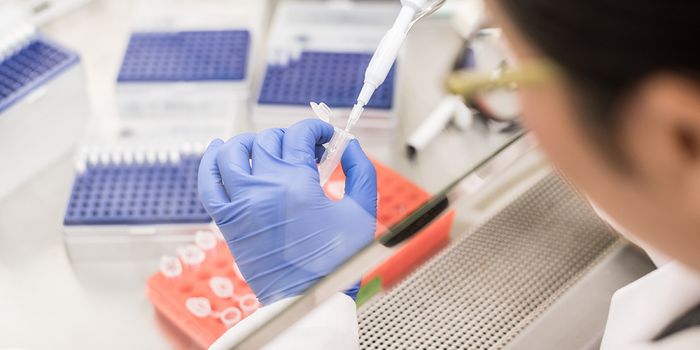New Compound Fights Off Flesh-Eating Bacteria

Antibiotic resistance is a threat to health and agricultural systems globally. Contributing factors include overuse and misuse of antibiotics, exposure to environmental reservoirs of antibiotic-resistant bacteria, and a slowdown in antimicrobial drug development, which has led to a reliance on existing antimicrobials. There is an urgent need for new antimicrobials to combat antibiotic resistance and avert the increasing threat of a ‘post-antibitic’ era.
In previous work, the researchers behind the current study sought to develop a compound that may prevent bacterial films from attaching to the surface of urethral catheters, a common cause of hospital-linked urinary tract infections. They found that the molecule developed- called ring-fused 2-pyridone- also had infection-fighting properties against many types of bacteria.
They called the new group of compounds GmPcides, and showed that they can wipe out bacteria strains in petri dish experiments. In the current study, they decided to test the same compounds on necrotizing soft-tissue infections, which spread quickly and usually involve multiple types of gram-positive bacteria. The most well-known of these is called 'necrotizing fasciitis', or ‘flesh-eating disease’, and can quickly damage tissue so severely that limb amputation is required to control its spread. Around 20% of people with the condition die.
For the study, the researchers observed the effects of a GMPcide on mice infected with Streptococcus pyogenes, a bacteria responsible for 500,000 deaths each year around the world, including flesh-eating disease. Mice treated with the compound fared better than untreated animals; they lost less weight, had smaller ulcers linked to infection, and fought off the infection more quickly. The compound also seemed to reduce the virulence of the bacteria and accelerate post-infection recovery of damaged skin.
"All of the gram-positive bacteria that we've tested have been susceptible to that compound. That includes enterococci, staphylococci, streptococci, C. difficile, which are the major pathogenic bacteria types. The compounds have broad-spectrum activity against numerous bacteria," said Michael Caparon, PhD, a professor of molecular microbiology at Washington Unversity School of Medicine, in a press release.
The researchers are not sure how GmPcides work against gram-positive bacteria. A microscopic examination showed, however, that the treatment may work by damaging bacterial cell membranes, which in turn disrupts bacterial function, reducing its ability to combat the host’s immune system. Further experiments found that the compound is unlikely to generate drug-resistant strains.
More research is needed before GmPcides can be used as a potential treatment. Study author Scott Hultgren, PhD, Professor of Molecular Microbiology at Washington University School of Medicine, said in a press release:
“Bacterial infections of every type are an important health problem, and they are increasingly becoming multi-drug resistant and thus harder to treat. Interdisciplinary science facilitates the integration of different fields of study that can lead to synergistic new ideas that have the potential to help patients."
Sources: Science Daily, Science Advances








